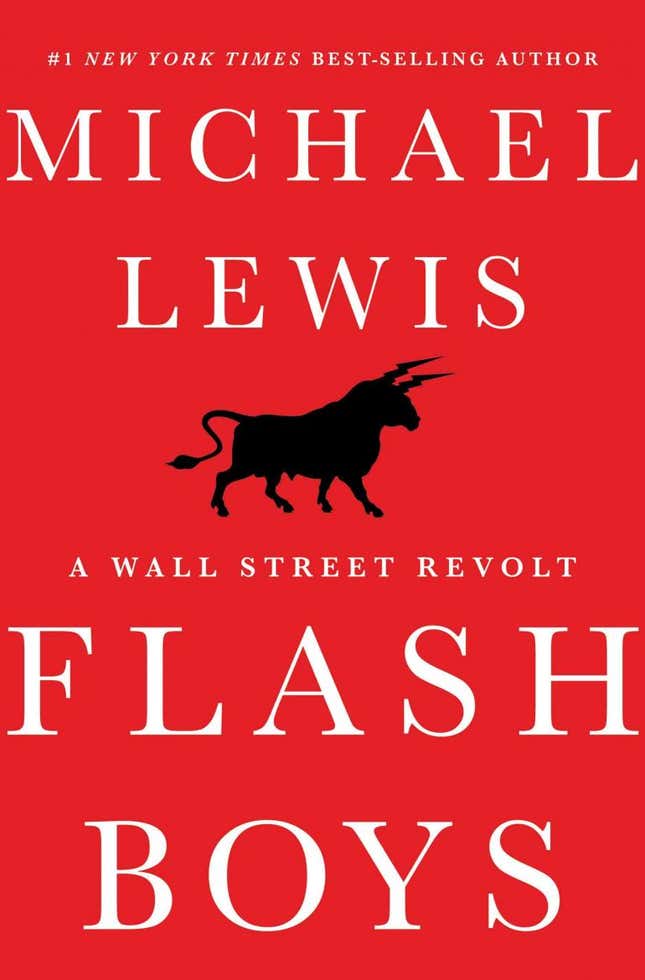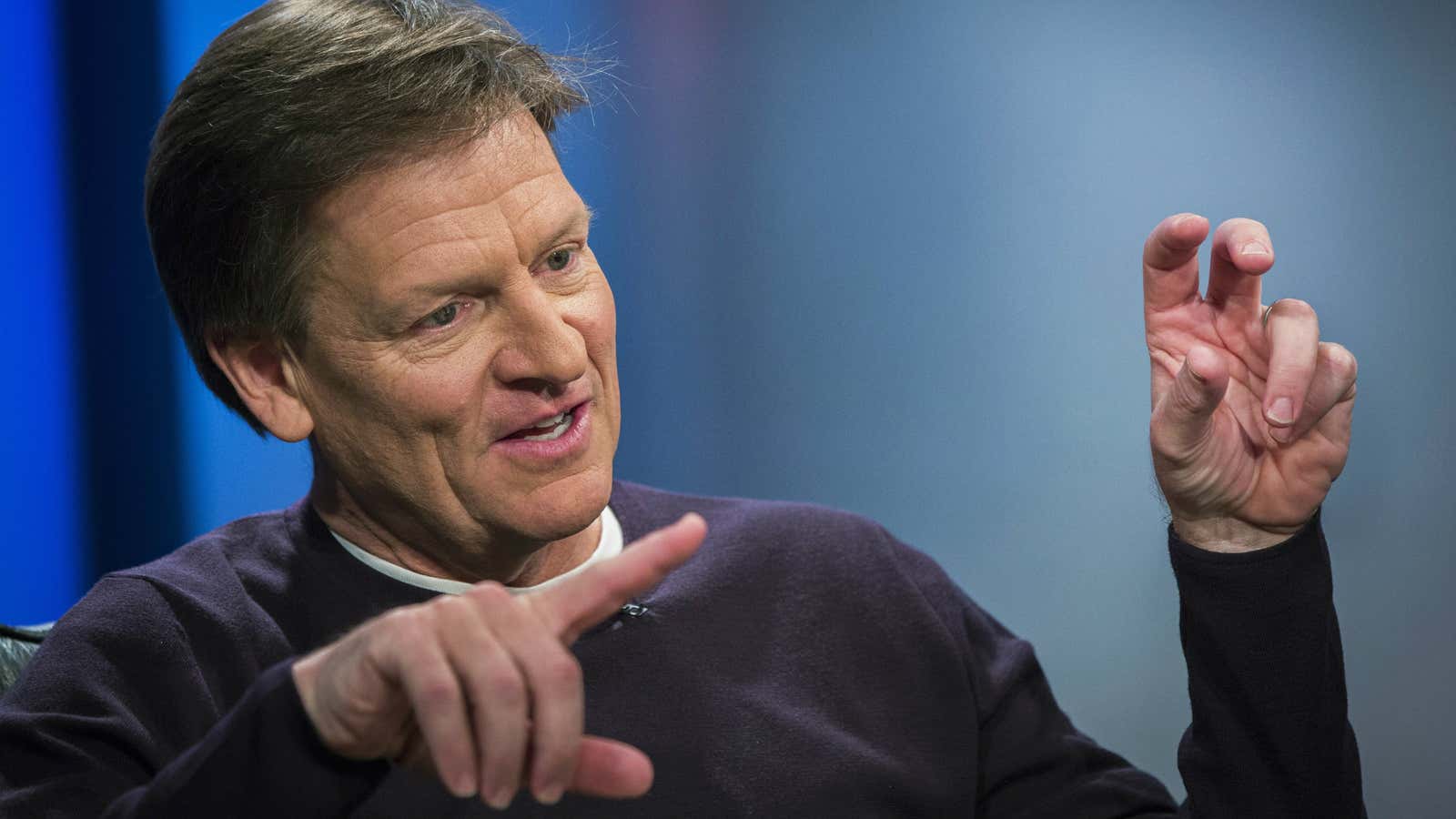Not long after US subprime mortgage collateralized debt obligations ravaged the global economy, some of Wall Street’s most brilliant financial minds embraced another numbingly complex system that spit out billions of dollars in profits while serving no productive purpose. It was called “high-frequency trading.”
Many Americans may think they understand this term. It means buying and selling company shares at lightning speed, right? To a degree, yes. But, as Michael Lewis writes in Flash Boys, to confine the definition is to misunderstand it fundamentally.
In actual practice, a high-frequency trader is someone who uses a super-fast computer to swoop in just as your broker pushes the button to buy 1,000 shares of Microsoft. The computer purchases the shares milliseconds before the sale goes through, then sells them back to you at an inflated price—all fast enough to keep even your broker in the dark about what just happened. These systems allow traders to behave pretty much like skilled pick-pockets—which explains why Eric Holder, the US attorney general, said yesterday that he is investigating the practice. So murky and insidious are such shenanigans that the FBI, stumped, recently issued a plea for high-speed traders to out themselves.

As with The Big Short, Lewis’s take on the subprime crash, he delivers an exciting and infuriating read. But Flash Boys is better. In the former, Lewis failed to mention his own prior role as a vicious critic of the very whistleblowers he championed; in Flash Boys, he carries no such revisionist baggage.
Not everyone likes the book. The CEO of one high-frequency trading firm, Manoj Narang of Tradeworx, called it “very disappointing” compared with Liar’s Poker, Lewis’s breakthrough first book, and suggested that it was a misfire by the Berkeley-based author. Financial writer Felix Salmon faulted Lewis for purporting to defend the little guy when big investors are the ones who lose out in high-frequency trading. “Individual orders never even make it to an exchange,” Salmon writes in a Twitter exchange.
Narang told The New York Times: “There’s no unfair advantage to using your brain, last time I checked, in a capitalist society.” And indeed, what the CEO asserts is true—no law prohibits braniacs from posting phony stock bids in order to lure unwitting investors into a costly trap; no law forbids them to squander their gray matter on conniving schemes. The power of this elegantly crafted book, however, is that one puts it down prepared to support legislation banning such nefarious applications of brainpower.
At banks such as Citi, Deutsche Bank and Credit Suisse, high-frequency traders dress up their products with seductive names: Ambush, Nighthawk, Sumo and Dark Attack. Practitioners work under curiously strict security: A former trader with a high-frequency firm called Citadel compares the experience with a prior job at the Pentagon:
To get into the Pentagon and into my area, it took two badge swipes. One to get into the building and one to get into my area. Guess how many badge swipes it took to get to my seat at Citadel? Five.
Such security, high frequency traders would argue, is needed for the “liquidity” they bring to the financial system, buying and selling when few will, and thus making it healthier. They suggest that those who seek to halt the practice are enemies of liquidity, willing to blow up the entire financial edifice. But Lewis will have none of such talk. “Liquidity was one of those words that Wall Street people threw about when they wanted the conversation to end, and for brains to go dead, and for all questioning to cease,” he writes.
The heroes of Lewis’s narrative, led by a Canadian banker named Brad Katsuyama, are bent upon cleaning up the system. At one point, an incredulous potential client remarks to a colleague, “Have you figured out why he’s playing Robin Hood?”
Though we’ve seen this movie before, Lewis’s villains remain unnerving—ultra-smart people transformed primordially, producing nothing of lasting use, while sounding a lot like 1930s gangsters.
